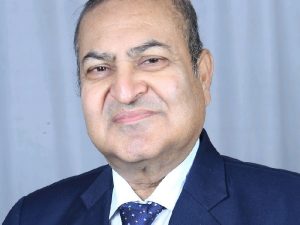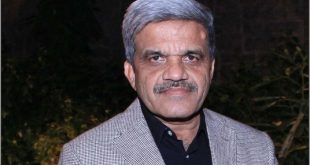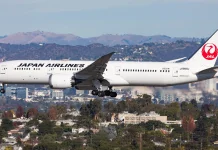The July 2024 Union Budget has introduced a wide range of measures to boost economic growth and promote development in different sectors. For the tourism industry, this budget offers a combination of developments and challenges, which are shaping the tourism sector in the coming years.
The budget includes significant investments in key cultural and spiritual sites to enhance India’s tourism landscape. The Vishnupad Temple and Mahabodhi Temple corridors in Bihar are set for comprehensive development, transforming these revered locations into world-class pilgrimage and tourist destinations. Similarly, Rajgir, with its profound religious significance will see a robust development initiative to enhance its appeal. The budget includes plans to revive Nalanda University and develop Nalanda as a tourist center. Odisha’s unique blend of scenic beauty, historical monuments, and vibrant culture is also set to benefit from targeted development, reinforcing its status as a premier tourism destination These initiatives aim to leverage tourism to boost economic growth, create jobs, and support regional development.
While the budget’s infrastructure investments are largely welcomed, industry leaders express concerns about several unresolved issues. Travel + MICE Showcase reached out to key figures in the tourism sector for their insights.

Mr. Gajesh Girdhar, Founder & National Coordinator of NIMA (Network Of Indian MICE Agents), shared, “Union Budget of July 2024 came with a mix bag for the tourism industry. Some of the positives such as focus and rebate for Cruise Tourism, developing new corridors for religious tourism, and other infrastructure enhancements are vital for economic growth, especially through tourism. However, issues of rationalization of GST and removal of TCS (especially for international travel) remain untouched. Another demand for the refund of GST for shopping by international travelers, especially for handicrafts and Make in India products, went unheard. In the interim budget, the international marketing/promotion budget was slashed by 99%, and the current increase is nowhere close to the original amount. While the government is focusing on inbound tourism, it is important to conduct regular roadshows, offer fam trips, and other promotions in target countries, which require budget enhancement, not such drastic cuts.”

Ms. Jyoti Mayal, President of TAAI (Travel Agents Association of India), highlighted the ongoing struggles and opportunities., “As the President of the Travel Agents Association of India and Vice Chairperson of FAITH, I must highlight the ongoing, unaddressed struggles faced by us, stakeholders. Our advocacy continues for granting ‘industry status’ to the travel and tourism sector at the state level. Such recognition would bring numerous benefits, including better banking facilities, property tax calculations, land allocations, and other advantages. The industry has consistently recommended a uniform GST rate of 12% for hotels to address price disparities based on room tariffs. Simplifying GST rates and ITC under IGST would benefit both travelers and operators. The biggest challenge remains the TCS (Tax Collected at Source) on outbound travel; its removal would ease business operations and simplify tax collection mechanisms, encouraging outbound tourism and reducing administrative burdens. These measures would improve the tax structure, enhance cash flow, benefit businesses, and contribute to a robust economy. As the Chairperson of the Tourism & Hospitality Skill Council, I am pleased to note that the Budget 2024 has placed significant emphasis on skill development to address the evolving needs of the workforce and ensure that the economy remains competitive in a rapidly changing global environment. The Skill Development Mission has received additional funding to expand its reach and effectiveness, focusing on training in future skills job roles, particularly for the youth” she said.

Mr. Rajan Sehgal, President of the India Golf Tourism Association (IGTA), expressed support for the focus on Odisha and other initiatives: “The focus on advancing tourism in Odisha and other culturally rich states is highly commendable. By improving tourism infrastructure and promoting our diverse natural and historical attractions, we are poised to attract global tourists, thereby boosting local economies and fostering sustainable development. Simpler tax regimes for foreign cruise companies operating domestic cruise vessels in India will promote cruise tourism.”

The reduction in the international marketing budget and the lack of changes to GST and TCS policies are significant concerns. “The new budget’s emphasis on infrastructure development is a significant boost for large tourism enterprises, promising enhanced connectivity and facilities. However, the existing tax structure and regulatory environment still pose challenges. While the allocation for educational programs is a positive step towards nurturing skilled professionals, further reforms to simplify business processes and reduce tax liabilities would greatly benefit large-scale investments in the sector” Himanshu Talwar, Columnist & Author shared.

Mr. Anil Parashar, Chair of the Tourism & Hospitality Committee at PHDCCI, commended the budget’s vision, stating, “We commend the government’s visionary approach in recognizing the immense potential of India’s tourism sector. The development plans for the Vishnupad and Mahabodhi temples, as well as Rajgir and Nalanda, will not only enhance the spiritual and historical significance of these sites but also drive economic growth and create employment opportunities. This budget is a significant step towards making India a top global tourist destination.”
The 2024 Union Budget represents a notable investment in India’s tourism sector, with a focus on enhancing infrastructure and leveraging the country’s cultural and spiritual assets. While the sector benefits from these developments, ongoing issues related to tax policies and regulatory frameworks continue to be areas of concern. Balancing infrastructure investments with necessary policy reforms will be crucial for fully realizing tourism’s potential and fostering a robust and dynamic industry.















